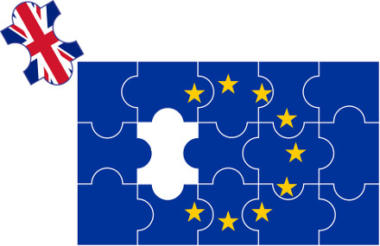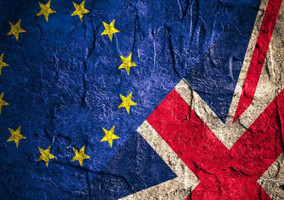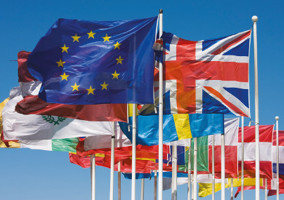Steve Clapperton, campaigns manager at the Charities Aid Foundation, outlines the eight things that the charity sector needs from the government's Brexit negotiations.
Much ink has been spilt talking about the implications of Brexit for the economy, and Britain’s place in the world. Much less has been spent talking about what it might mean for our society and the charities that bind it together.
Whatever the arguments about the pros and cons of Brexit, as Theresa May today (Wednesday) invokes Article 50 and triggers the process of Britain’s exit from the EU, there are some clear tests that any future deal must pass if it is to protect the civil society of which we are rightly proud.
1. A strong economy
Charities rely on the generosity of donors, who need jobs and a strong, growing economy to allow them to support the causes that they care about – this is particularly true in the philanthropic hub that is the City of London. The government must ensure that UK’s economy remains strong, so donors are able to continue to give generously.
2. Protecting progress
The government is expected to incorporate all existing European law into UK law, before working out which bits will be retained for good. Many charities in fields from the environment to animal rights have helped develop legislation, trying to make the UK a better place. Charities must be given the opportunity to make their case for the retention of these protections so we keep the right standards.
3. Uniting communities
The referendum campaign and aftermath revealed a fragmented society, with concerns raised about divisions and the social climate. Charities operating on the ground are best placed to take action to bring communities back together – central and local government should empower and embolden charities to rebuild social cohesion.
4. Giving people a voice
Many people feel abandoned by the political class, which is why they are increasingly turning to charities, protest movements and online engagement to deliver the social change that they want to see. By advocating for the voiceless, charities can prevent ordinary people from being shut out of political debate. The government must commit to protecting the freedom of charities to speak up for their beneficiaries.
5. Maintaining funding
A number of charities – including the likes of the British Museum and World Vision UK - benefit from access to EU funding streams. The House of Lords committee on charities warned at the weekend that charities stand to lose £200m of EU funding every year unless government steps in. Cutting off that flow of funding could put at risk the valuable work that they carry out in the UK, particularly if it is not matched by any replacement finance. The government should either protect charities’ access to EU funding streams, or find a way of filling the gap so that organisations and causes are not disadvantaged.
6. Delivering soft power
The UK will be looking to make increasing use of its soft power to influence international debate. Charities from the UK operate across the globe, with over 10,000 based in England and Wales alone operating in Commonwealth countries. Government should look to build on the ties that these charities have developed and their influence in order to bolster the UK’s soft power and develop the links to deliver a global Britain.
7. Donating overseas
Many donors in the UK give to charities operating in the EU, and a European ruling preserves the principle that donors giving across borders can claim tax relief in their country of residence. The UK should commit to maintaining this principle – which affects almost £20m of donations in the UK each year – protecting the rights of donors and helping to strengthen ties with European countries.
8. Keeping businesses social
EU sustainability rules form the basis of many UK companies’ corporate social responsibility programmes, which ensure that the UK’s biggest businesses make an important social contribution. The government should ensure that leaving the EU does not lead to a watering down of these standards, so that UK consumers know that corporate Britain is continuing to use its resources for good.
Taken collectively, these principles will help protect charities, donors and beneficiaries as Britain exits the EU. By delivering on all of the above, government will ensure Britain benefits from the unique strengths of our charities to help strengthen and bring the country back together while utilising the international reputation of our civil society to strengthen existing ties and develop new ones.
Our challenge to the Prime Minister is to deliver on this vision that would see Britain’s public, private and charitable sectors working together to build a stronger Britain that, whatever the rhetoric, does indeed work for everyone.
By Steve Clapperton, Campaigns Manager, Charities Aid Foundation
Related articles











